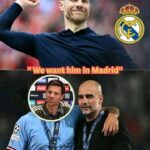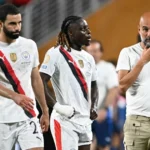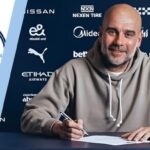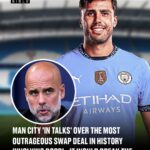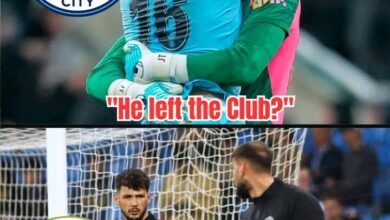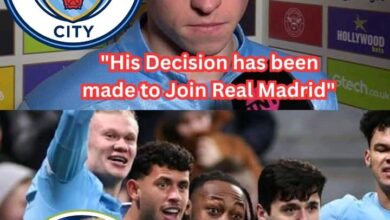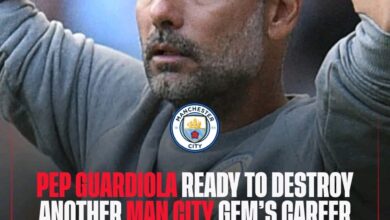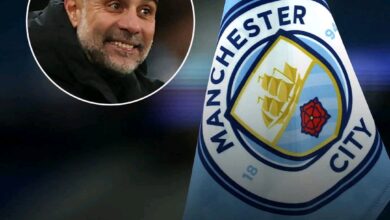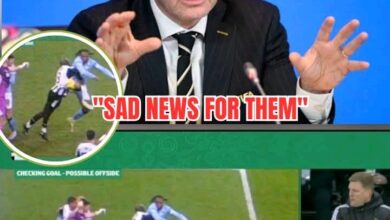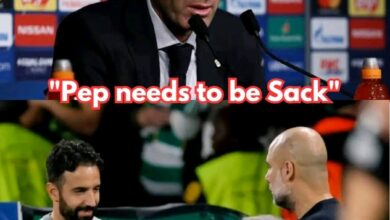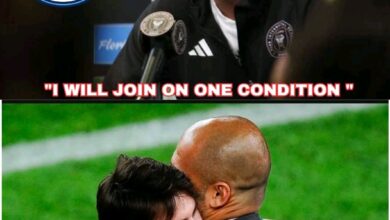Pep Guardiola reveals Man City star’s new injury blow during Club World Cup humiliation
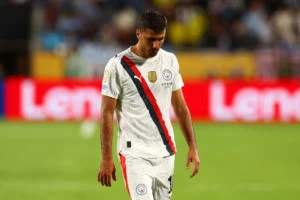
Manchester City’s ambitious journey in the Club World Cup came to a crushing halt in the most unexpected of circumstances, as Pep Guardiola’s side fell victim to one of the competition’s greatest upsets. The Premier League giants, who had arrived with hopes of adding another prestigious trophy to their collection, were eliminated by Saudi Arabian side Al-Hilal in a result that will be remembered as one of the most shocking outcomes in the tournament’s history.
The defeat was made all the more bitter by the revelation that star midfielder Rodri, already having endured a nightmare season due to injury, had suffered yet another physical setback during the match. The Spanish international’s latest injury concern adds another layer of complexity to what has already been a challenging campaign for both player and club.
The Match That Defied All Expectations
From the outset, Manchester City entered the Club World Cup as overwhelming favorites. Their pedigree in European competition, combined with their domestic dominance and the tactical genius of Pep Guardiola, made them the natural choice to lift the trophy. However, football has a way of humbling even the most accomplished teams, and Al-Hilal proved that reputation counts for nothing when it matters most.
The match itself was a tale of missed opportunities and tactical miscalculations. City dominated possession and created numerous scoring chances, yet found themselves unable to break down a resolute Al-Hilal defense. The Saudi side, organized and disciplined in their approach, demonstrated the kind of defensive solidity that has troubled many top European teams in recent years.
Guardiola’s tactical approach seemed sound on paper, but execution on the pitch told a different story. City’s usual fluidity and precision appeared lacking, with players struggling to find the final pass or finish that would have put the game beyond doubt. The team’s inability to convert their dominance into goals would prove costly as the match progressed into extra time.
Rodri’s Cruel Twist of Fate
Perhaps the most heartbreaking aspect of the evening was the injury suffered by Rodri, a player who has endured more than his fair share of physical setbacks in recent times. The defensive midfielder, who missed virtually the entire previous season due to a cruciate ligament injury, had been working tirelessly to regain his form and fitness.
The circumstances of his latest injury were particularly cruel. Having been introduced as a substitute in the 53rd minute, presumably to add stability and control to City’s midfield, Rodri found himself being substituted again during extra time due to another injury concern. The sight of the Spanish international leaving the field must have been devastating for both player and manager.
Guardiola’s post-match comments about Rodri were measured but revealed the concern within the camp. “We have to see Rodri, he complained about his situation, but we need time to come back,” the City boss stated, his words carrying the weight of understanding what another injury could mean for a player who has already endured so much.
The nature and extent of Rodri’s latest injury remain unclear, but any setback for a player of his caliber represents a significant blow to Manchester City’s prospects. His absence last season was deeply felt, with the team’s defensive stability and midfield balance suffering considerably without his presence.
Al-Hilal’s Historic Achievement
While Manchester City nursed their wounds, it was important to acknowledge the magnitude of Al-Hilal’s achievement. The Saudi Arabian club pulled off what many are calling the biggest upset in Club World Cup history, a result that will be celebrated for years to come in their homeland and across the region.
Al-Hilal’s tactical approach was exemplary throughout the match. They defended with discipline and organization, making it extremely difficult for City’s attacking players to find space and time on the ball. Their defensive shape remained compact and structured, forcing City to play in front of them rather than allowing the kind of penetrating passes that usually unlock defenses.
The Saudi side’s goalkeeper, Bono, delivered a performance that will be remembered as one of the finest individual displays in the competition’s history. His series of outstanding saves kept Al-Hilal in the match during periods when City threatened to take control. Each stop seemed to grow in importance as the match wore on, ultimately proving decisive in his team’s progression.
On the counter-attack, Al-Hilal showed they possessed the quality and pace to trouble even the most accomplished defenses. Their ability to transition quickly from defense to attack caught City off guard on several occasions, exploiting the spaces left by Guardiola’s high defensive line.
Guardiola’s Tactical Reflection
In the aftermath of the defeat, Pep Guardiola provided his analysis of what went wrong for his team. The City manager acknowledged that his side had been “too slow to react” but maintained that they had created sufficient opportunities to win the match.
“It was a difficult game. We allowed them to make transitions we created a lot. It is a pity, we have been on incredible journey together and so good place,” Guardiola reflected, his words revealing both frustration and philosophical acceptance of the result.
The City boss was particularly critical of his team’s defensive transitions, highlighting how Al-Hilal had been able to exploit the spaces left when City committed players forward. “We were so open. When the crosses arrived, in the first action, they had the ability to pass the ball and attack and they have quick players,” he observed.
This tactical vulnerability has been a recurring theme in some of City’s disappointing results in recent seasons. While their attacking prowess is rarely questioned, there have been occasions when their commitment to playing a high line and pressing aggressively has left them exposed to quick counter-attacks.
The Broader Context of City’s Season
Manchester City’s elimination from the Club World Cup represents the loss of their final opportunity to salvage silverware from what has been a challenging season by their exceptionally high standards. The defeat strips away their last remaining hope of adding to their trophy cabinet, leaving Guardiola and his players to reflect on what might have been.
The season had already presented numerous challenges for the club. Injuries to key players, including Rodri’s long-term absence, had disrupted the team’s rhythm and balance. The loss of certain personnel had forced Guardiola to adapt his tactical approach and rely on different combinations of players.
Competition in both domestic and European competitions had been fierce, with rivals strengthening their squads and raising their own standards. The margin for error at the highest level of football has never been smaller, and even teams of City’s quality can find themselves falling short of their objectives.
The Club World Cup had represented an opportunity to end the season on a positive note, providing both players and fans with something to celebrate. The format of the competition, held every four years, made this a particularly special opportunity that may not come around again for some time.
The Physical and Mental Toll
The physical demands of modern football cannot be understated, and Manchester City’s experience in the Club World Cup highlighted the toll that a packed fixture schedule can take on even the most conditioned athletes. The competition came at the end of an already grueling season, with players having been pushed to their limits across multiple competitions.
Rodri’s latest injury serves as a stark reminder of the physical risks that players face every time they step onto the pitch. The Spanish midfielder’s previous cruciate ligament injury had already demonstrated the fragility of even the most robust professional athletes. His latest setback, coming so soon after his return to action, underscores the challenges of managing player fitness and recovery.
The mental aspect of dealing with repeated injuries cannot be overlooked either. For a player like Rodri, who takes immense pride in his consistency and availability, being forced off the pitch due to injury represents more than just a physical setback. The psychological impact of such experiences can be significant, requiring careful management and support from medical staff and coaches.
Guardiola’s Leadership in Adversity
Throughout the disappointment of the Club World Cup elimination and Rodri’s injury, Pep Guardiola demonstrated the leadership qualities that have made him one of the most respected coaches in world football. His post-match comments struck a balance between honest assessment and unwavering support for his players.
“I cannot thank Manchester City enough and especially the players for training and how they have been playing,” Guardiola stated, emphasizing his appreciation for his squad’s efforts despite the disappointing outcome. This public show of support is characteristic of the City manager’s approach to setbacks.
The Catalan coach also highlighted the positive aspects of the team’s preparation and training camp, refusing to let the final result overshadow the work that had been done in the lead-up to the competition. “The vibe was really good,” he noted, “the training sessions have been really good.”
This ability to maintain perspective and focus on the positives while acknowledging areas for improvement is a hallmark of Guardiola’s coaching philosophy. Even in defeat, he continues to build confidence in his players and prepare them for future challenges.
Looking Ahead: Recovery and Renewal
As Manchester City prepare to return home from their Club World Cup campaign, attention inevitably turns to the future. The immediate priority will be assessing the extent of Rodri’s injury and developing a recovery plan that ensures his long-term health and availability.
The club’s medical team will need to conduct thorough examinations to determine the nature and severity of the midfielder’s latest complaint. Given his history of serious injury, there will be no rush to return him to action. The priority must be ensuring that any treatment or rehabilitation program addresses not just the immediate issue but also provides the foundation for sustained fitness going forward.
For the broader squad, the Club World Cup experience, despite its disappointing conclusion, will have provided valuable lessons and preparation for the challenges ahead. The level of competition faced and the pressure of representing their club on the global stage will have strengthened the team’s resolve and unity.
Guardiola’s emphasis on the positive aspects of the team’s preparation and togetherness suggests that he sees this experience as part of the ongoing development of his squad. The relationships formed and the standards maintained during the tournament will serve as building blocks for future success.
The Lessons of Defeat
Every defeat carries lessons, and Manchester City’s elimination from the Club World Cup will undoubtedly provide Guardiola and his coaching staff with valuable insights for the future. The match against Al-Hilal highlighted both tactical and mental aspects that require attention.
Tactically, the team’s vulnerability to counter-attacks when committing players forward is an area that demands continued work. The balance between attacking ambition and defensive security is a constant challenge for any team that plays with City’s aggressive style.
Mentally, the experience of losing to supposedly inferior opposition will have been humbling for players accustomed to success. This humility, properly channeled, can become a source of motivation and drive for future competitions.
The importance of taking chances when they present themselves was also underlined by the Al-Hilal match. City’s failure to convert their dominance into goals ultimately cost them the match, demonstrating that efficiency in front of goal remains paramount at the highest level.
Conclusion: A Chapter Closes, Another Begins
Manchester City’s Club World Cup campaign ends with disappointment and concern, but also with the knowledge that football’s greatest stories are often built on overcoming adversity. The loss to Al-Hilal will sting, particularly given the circumstances and the additional blow of Rodri’s injury.
However, the character of this Manchester City team and their manager suggests that this setback will be met with determination and renewed focus. The rest period that Guardiola mentioned will provide time for physical recovery and mental preparation for the challenges ahead.
For Rodri, the road back to full fitness may be long, but his previous successful recovery from serious injury demonstrates his resilience and commitment. The support system at Manchester City, from medical staff to teammates to coaching personnel, will be crucial in his journey back to the pitch.
The Club World Cup experience, despite its bitter ending, will have strengthened the bonds within the squad and provided valuable experience that could prove beneficial in future competitions. Sometimes, the lessons learned in defeat prove more valuable than those learned in victory.
As Manchester City return home and begin their preparations for the next season, they do so with the knowledge that they remain one of the world’s elite football clubs. One tournament does not define a team’s quality or character, and Guardiola’s side will undoubtedly use this experience as motivation for future success.
The beautiful game has reminded Manchester City that no victory is guaranteed, no opponent should be underestimated, and that football’s greatest glory often comes to those who can rise again after falling. The next chapter of their story awaits, and if history is any guide, it will be written with the same ambition and excellence that has defined this remarkable club.
